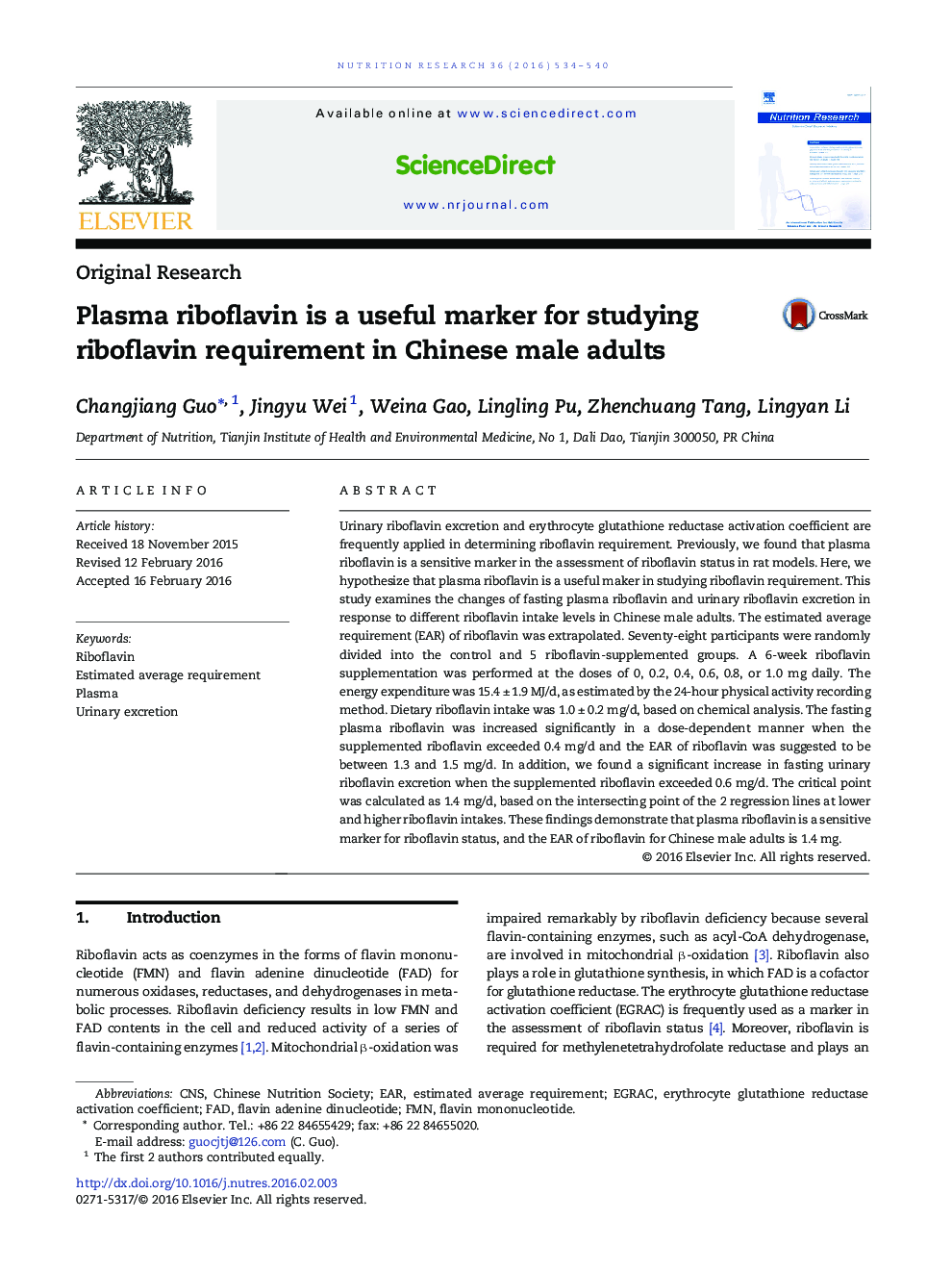| کد مقاله | کد نشریه | سال انتشار | مقاله انگلیسی | نسخه تمام متن |
|---|---|---|---|---|
| 2808887 | 1157980 | 2016 | 7 صفحه PDF | دانلود رایگان |
عنوان انگلیسی مقاله ISI
Plasma riboflavin is a useful marker for studying riboflavin requirement in Chinese male adults
ترجمه فارسی عنوان
ریبوفلاوین پلاسما یک نشانگر مفید برای مطالعه ریبوفلاوین در بزرگسالان چینی است
دانلود مقاله + سفارش ترجمه
دانلود مقاله ISI انگلیسی
رایگان برای ایرانیان
کلمات کلیدی
موضوعات مرتبط
علوم زیستی و بیوفناوری
بیوشیمی، ژنتیک و زیست شناسی مولکولی
علوم غدد
چکیده انگلیسی
Urinary riboflavin excretion and erythrocyte glutathione reductase activation coefficient are frequently applied in determining riboflavin requirement. Previously, we found that plasma riboflavin is a sensitive marker in the assessment of riboflavin status in rat models. Here, we hypothesize that plasma riboflavin is a useful maker in studying riboflavin requirement. This study examines the changes of fasting plasma riboflavin and urinary riboflavin excretion in response to different riboflavin intake levels in Chinese male adults. The estimated average requirement (EAR) of riboflavin was extrapolated. Seventy-eight participants were randomly divided into the control and 5 riboflavin-supplemented groups. A 6-week riboflavin supplementation was performed at the doses of 0, 0.2, 0.4, 0.6, 0.8, or 1.0 mg daily. The energy expenditure was 15.4 ± 1.9 MJ/d, as estimated by the 24-hour physical activity recording method. Dietary riboflavin intake was 1.0 ± 0.2 mg/d, based on chemical analysis. The fasting plasma riboflavin was increased significantly in a dose-dependent manner when the supplemented riboflavin exceeded 0.4 mg/d and the EAR of riboflavin was suggested to be between 1.3 and 1.5 mg/d. In addition, we found a significant increase in fasting urinary riboflavin excretion when the supplemented riboflavin exceeded 0.6 mg/d. The critical point was calculated as 1.4 mg/d, based on the intersecting point of the 2 regression lines at lower and higher riboflavin intakes. These findings demonstrate that plasma riboflavin is a sensitive marker for riboflavin status, and the EAR of riboflavin for Chinese male adults is 1.4 mg.
ناشر
Database: Elsevier - ScienceDirect (ساینس دایرکت)
Journal: Nutrition Research - Volume 36, Issue 6, June 2016, Pages 534-540
Journal: Nutrition Research - Volume 36, Issue 6, June 2016, Pages 534-540
نویسندگان
Changjiang Guo, Jingyu Wei, Weina Gao, Lingling Pu, Zhenchuang Tang, Lingyan Li,
